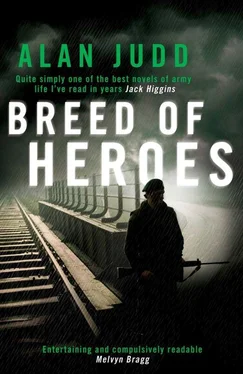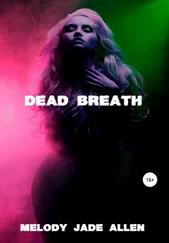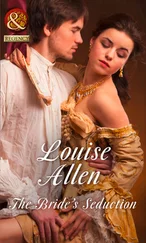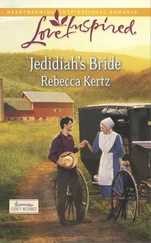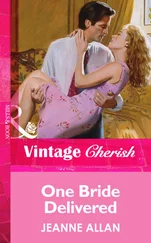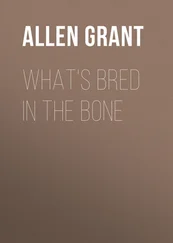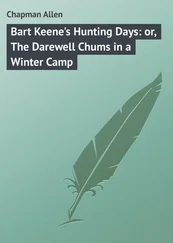Alan Judd - A Breed of Heroes
Здесь есть возможность читать онлайн «Alan Judd - A Breed of Heroes» весь текст электронной книги совершенно бесплатно (целиком полную версию без сокращений). В некоторых случаях можно слушать аудио, скачать через торрент в формате fb2 и присутствует краткое содержание. Год выпуска: 2011, ISBN: 2011, Издательство: Simon & Schuster UK, Жанр: Современная проза, на английском языке. Описание произведения, (предисловие) а так же отзывы посетителей доступны на портале библиотеки ЛибКат.
- Название:A Breed of Heroes
- Автор:
- Издательство:Simon & Schuster UK
- Жанр:
- Год:2011
- ISBN:9781847397720
- Рейтинг книги:3 / 5. Голосов: 1
-
Избранное:Добавить в избранное
- Отзывы:
-
Ваша оценка:
- 60
- 1
- 2
- 3
- 4
- 5
A Breed of Heroes: краткое содержание, описание и аннотация
Предлагаем к чтению аннотацию, описание, краткое содержание или предисловие (зависит от того, что написал сам автор книги «A Breed of Heroes»). Если вы не нашли необходимую информацию о книге — напишите в комментариях, мы постараемся отыскать её.
Alan Judd tells Thoroughgood’s tale with verve, compassion and humour. The result is an exceptionally fine novel which blends bitter human incident with army farce.
A Breed of Heroes — читать онлайн бесплатно полную книгу (весь текст) целиком
Ниже представлен текст книги, разбитый по страницам. Система сохранения места последней прочитанной страницы, позволяет с удобством читать онлайн бесплатно книгу «A Breed of Heroes», без необходимости каждый раз заново искать на чём Вы остановились. Поставьте закладку, и сможете в любой момент перейти на страницу, на которой закончили чтение.
Интервал:
Закладка:
‘D’you feel like that about this one?’
‘Oh no, not at all, it’s made me feel much better. Though I didn’t think I was going to get an erection first of all.’ He lit a cigarette and lay back on his bunk. ‘It’s funny, you know, but they all seem to like uniforms. This is the second one that’s made me do it in my shirt hairy. Do you find that?’
Charles recalled Janet’s hysterical dislike of anything rough, hairy or military. She had a particular aversion to his hairy Army shirts, worn in cold weather and referred to, in typical Army fashion, as ‘shirts hairy’. ‘Not recently. I heard of someone who used to do it wearing his webbing belt, water bottles and ammunition pouches.’
‘I’ve tried that. It’s all right so long as you remember to empty your water bottles. Otherwise you get a bruised arse.’
Charles undressed and climbed on to his bunk. The search for sex was the preoccupation of many in the Army, more so than the preparation for war. Since joining, Charles had found that he was either in a mood of frantic sexual desire, in which anything female was acceptable, or he felt curiously asexual and remote. This latter mood corresponded to a feeling of remoteness from the Army in general, whereas the former he thought of as a simpler and more aggressive form of escapism made stronger and cruder by the rough and ready nature of male companionship. Being in the Army was so enveloping an experience that it did not occur to him that anything could happen independently of it. If he had developed appendicitis he might have been inclined to think it the result of too much weapons training.
It was some time before he fell asleep. The events of the evening, the noises and motion of the boat, thoughts of what lay ahead all jostled for priority in his consciousness. Then, just as drowsiness crept over him, Henry Sandy began snoring and making odd masticating noises, as though he were chewing in his sleep. These continued, on and off, for most of the night. Eventually, Charles’s haphazard thoughts clustered loosely around the prospect of violence. The idea of suffering or committing an act of violence did not bother him at all, though he knew that for many people outside the Army — Janet especially — this was of crucial concern. Or, at least, they thought of themselves as concerned. He suspected that most of them, just like most people within the Army, would react to the fact of violence much as they reacted to the other inescapable facts of life — they would simply do what they thought had to be done. That, of course, was a thought that had its own particular horror, but it was not something that would concern many people.
Even before joining the Army he had doubted his own capacity for decisive action, and now that the time for action approached — or so he thought — he doubted it more. He feared that when the time came he would hesitate. He wondered now, as the boat took the swell of the Irish Sea, whether his real reason for joining was not, after all, an attempt to resolve this doubt about himself. Perhaps he was doing no more than experiment with himself in much the same way as Henry did through sex; only more subtly than Henry, less honestly and no doubt less enjoyably.
3
They were awoken early as the ship approached Belfast Lough. After a hurried breakfast there was the usual confusion in drawing weapons and kit and finding men. Eventually Charles stood on the crowded deck with his platoon complete except for Sergeant Wheeler. Charles made the mistake of asking his enemy, the RSM, if he had seen Wheeler.
‘He’s with you, sir.’
‘He isn’t.’
The RSM had a stupid, brutal face but was nevertheless capable of sarcasm. He looked pained. ‘Is he not, sir? I thought he was.’
‘Well, he isn’t.’
‘But he ought to be.’
‘I know that, Mr Bone. That’s why I’m asking you.’
‘Bless me, sir, where d’you think he can have got to?’ The RSM obviously hated subalterns more than he hated anyone, and he hated Charles more than he hated any of them. Added to the normal dislike that men with many years of service frequently have for newcomers was a special dislike for Charles because he had been to university. His manner was as sarcastically paternal as he could make it. ‘Well, never you mind, sir, you just hang on here and I’ll go and see if I can find him for you.’
If people annoyed Charles it was always by what they did accidentally or unselfconsciously. Deliberate attempts to annoy him or slight him left him quite unmoved. This morning, in particular, there was Belfast to consider. The water was calm, and in Harland and Wolff’s shipyard the two huge cranes, Samson and Goliath, towered magnificently. The harsh, disjointed cries of gulls were thrown backwards and forwards across the harbour. The air was clear but there was already a dirty haze forming above the thousands of small rooftops of the city. Beyond them the hill called the Black Mountain lived up to its name. Charles’s platoon was quiet for once. He imagined that each man was striving, like him, to see something in Belfast that differed from any other industrial British city before breakfast. They could see nothing startling, and it made their own presence seem incongruous. On the quayside was their transport — lines of lorries, as might be expected — but the sense of incongruity was heightened by the detachment of Ferret scout cars that were guarding them, their Brownings pointed at the main road. There were also soldiers from the Wessex Scouts, the regiment that No. 1 AAC(A) was relieving, waiting in armoured Land-Rovers and Pigs — ancient one-ton armoured cars which no one had seen before and which had appeared out of storage especially for Northern Ireland. They had long snouts and carried nine or ten men, lumbering along with a distinctive whine. There was little or no movement by the escorts but a good deal of wireless activity. People walked past them to work without a glance. The whole thing looked absurdly tactical.
Sergeant Wheeler appeared suddenly. ‘Sorry about the delay, sir, I got collared by the RSM. He didn’t like the way I done me kit so I had to do it again. I did tell him I was supposed to be here but you know what he is, sir, not a man of reason.’
Sergeant Wheeler was a very plausible liar, but so was the RSM. Charles could not be bothered at that moment to try to sort it out. He was reminded of the problem of his own kit. Getting it all from the ship to the lorry without humiliation or undue delay would be a serious challenge. Then there was the problem of his respirator; everyone else had theirs, he noticed, but fortunately the CO was neither to be heard nor seen.
In the event he was able to make the necessary two journeys with his kit, and they boarded the lorries after a surprisingly short period of the usual hanging around. They set off with an impressive revving of engines, with the escorting vehicles from the Wessex Scouts and the military police interspersed between them. The soldiers stood in the backs of their Land-Rovers, one facing forward and the other backwards, their rifles at the ready. The Pigs rumbled along with their rear doors open and the Ferrets followed up behind. Protruding from the turret of one was the pink face of a young cavalry officer. He wore his beret and, round his neck, a dashing red and white spotted cravat that added a touch of quite startling colour to the scene. He had, though, taken the precaution of fastening the see-through and sometimes bullet-proof macralon screen around the top of his turret. Charles had heard of a corporal who had been looking out of the top of a Ferret in a similar fashion, though without the screen, and had lost an eye to an arrow fired from a crossbow.
The first streets they passed through were narrow and quiet, ordinary enough, but after a short while they became dirtier, and the walls, roads and pavements sported slogans, in some parts anti-British and in others anti-Catholic. Painted on the side of one house was a larger-than-life-size picture of King William on a white horse. Burnt-out wrecks of cars and other bits of twisted metal littered the gutters; many of the houses were empty and boarded up, many others had their windows broken; some walls were blackened by fire, and here and there a house was missing, leaving a gap as in a row of teeth. The convoy moved fast and the few people they saw did not bother to turn their heads. Soon they were in a more prosperous shopping area that looked normal except for one stretch of about a hundred yards in which not one shop window remained. Everything was boarded up, and one soldier, a native of Belfast, pointed to a mound of rubble, glass and metal girders that he said had been a car showroom.
Читать дальшеИнтервал:
Закладка:
Похожие книги на «A Breed of Heroes»
Представляем Вашему вниманию похожие книги на «A Breed of Heroes» списком для выбора. Мы отобрали схожую по названию и смыслу литературу в надежде предоставить читателям больше вариантов отыскать новые, интересные, ещё непрочитанные произведения.
Обсуждение, отзывы о книге «A Breed of Heroes» и просто собственные мнения читателей. Оставьте ваши комментарии, напишите, что Вы думаете о произведении, его смысле или главных героях. Укажите что конкретно понравилось, а что нет, и почему Вы так считаете.
